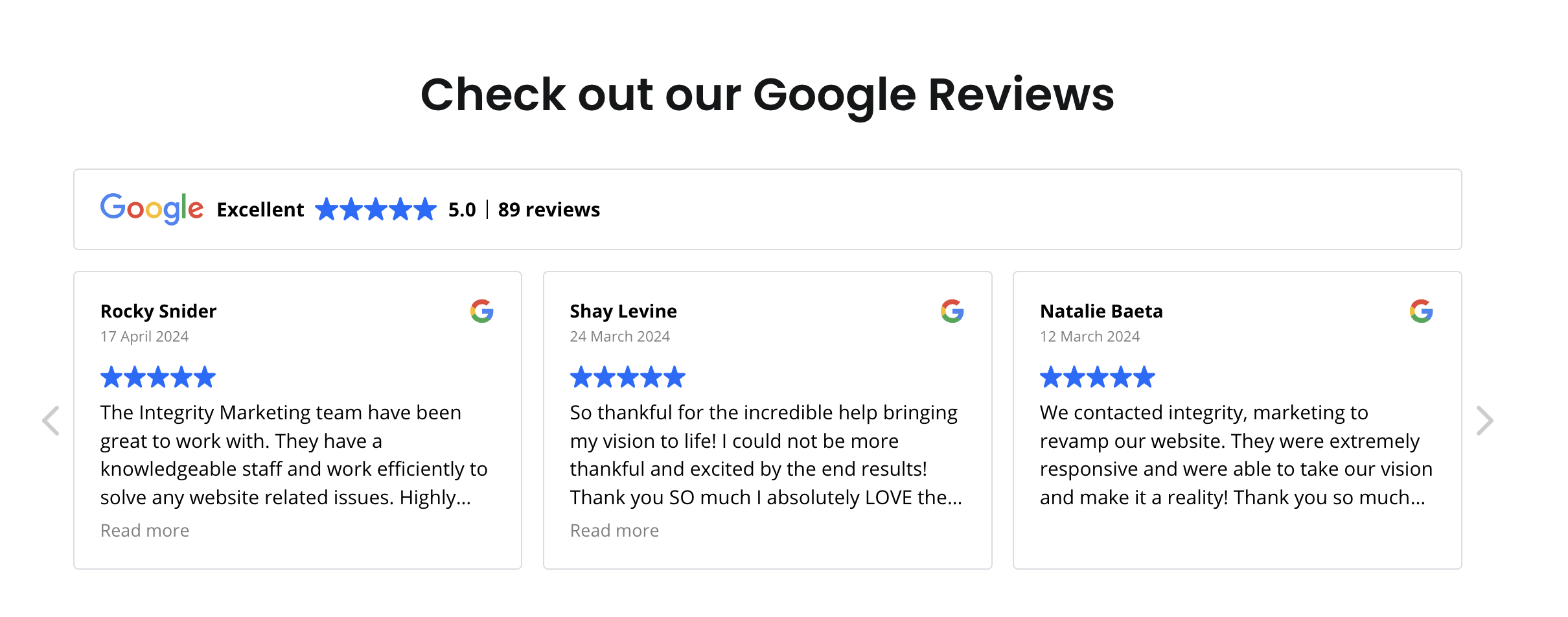Have you ever browsed online for a product and been impressed by a slew of five-star reviews, thinking, “It must really work”? Or have you looked for a service and noticed repeated praise for their exceptional customer service and efficiency? Conversely, have you searched for a business and found no reviews at all, wondering, “Can I trust them? Has anyone ever bought from them?” This illustrates the power of reviews. They hold a unique ability to influence potential customers, encouraging them to purchase your products or services and trust your brand.
But as a new business owner, you might be wondering – how do I start collecting reviews and building a positive reputation from scratch? Keep reading to discover more about reputation management, why reviews matter, and how to integrate a review funnel that actually works.

What is Reputation Management?
Reputation management involves monitoring, analyzing, and responding to the perception of your business online.
Monitoring: Seeing what your customers are saying about your business across different online platforms, such as Yelp, Angie’s List, Google, and Social Media.
Analyzing: Analyze the reviews to pick out common themes or things that multiple customers are saying – good or bad. For example, if multiple reviews highlight that “customer service is slow” or “difficult to reach,” you might want to address customer service with your employees
Responding: Respond to your customers’ reviews, thanking them for the positive praise or constructive criticism or pointing out areas for improvement.
As you can see, reputation management is not just about addressing negative feedback but also about highlighting positive experiences. It also isn’t a one-time effort; it’s an ongoing process. It involves regular monitoring of review sites, social media platforms, and other online outlets where people may be talking about your business. By staying on top of what people are saying, you can respond promptly to both positive and negative feedback.

Why Your Reviews Matter
Your reviews are more than just words on a screen. They are powerful tools that influence potential customers’ buying decisions and perceptions of your brand. Studies show that people trust online reviews as much as personal recommendations. In fact, BrightLocal’s 2023 Local Consumer Review Survey states that:
- 93% of consumers say online reviews influence their purchasing decisions.
- 79% of consumers trust online reviews as much as personal recommendations.
- 76% of consumers “regularly” read online reviews when browsing for local businesses.
According to a 2023 survey by ReviewTrackers:
- 73% of consumers consider a business’s review rating to be a crucial factor in deciding whether to purchase.
- 70% of consumers said they trust businesses more if they have a higher rating.
Building Consumer Trust.
When shopping online, customers often haven’t had previous experience with your product, service, or brand. A five-star rating or review of your products/services is the social proof that shoppers need to see in order to trust you as a company and believe that your product/service does what you say it does. People see positive reviews and immediately trust your business more.
Influences Purchasing Decisions
73% of consumers consider a business’s review rating to be a crucial factor in deciding whether to purchase. Simply put, if a customer sees numerous positive reviews, they are more likely to be swayed to purchase your product or service, sometimes even more so than those of your competitors who do not have any or fewer reviews.
Collect Feedback
Reviews provide valuable insights into what your business does well and what it does not, helping you understand your strengths and areas for improvement. Responding to reviews, both positive and negative, allows you to evaluate how you are running your business and what you can do to grow and improve.
Helps SEO
Online reviews also play a crucial role in SEO. Search engines like Google consider reviews and social proof when ranking websites. More positive reviews can lead to higher rankings, making your business more visible to potential customers. Additionally, reviews provide fresh content for search engines to index, further improving your SEO efforts.

How to Incorporate a Review Gathering/Management Funnel
Creating a review management funnel is essential for systematically collecting and managing customer feedback. Start by encouraging happy customers to leave positive reviews. This can be done in a few different ways:
1. Follow Up Emails
After a purchase or interaction, send a personalized follow-up email to your customers thanking them for their business and requesting a review.
Tips:
- Timing: Send the email shortly after the purchase or service when the experience is still fresh in the customer’s mind.
- Personalization: Address the customer by name and reference their specific purchase or service.
- Ease of Use: Include direct links or QR codes to review platforms (e.g., Google, Yelp, Trustpilot) to simplify the process.
- Incentives: Consider offering a small incentive, like a discount on their next purchase, as a thank you for leaving a review.
- Follow-Up: Send a reminder email if they haven’t left a review after a certain period.
2. Prompts on Your Website
Integrate review requests into various touchpoints on your website, such as after a transaction or on your post-purchase confirmation page.
Tips:
- Review Widgets: Use review widgets or pop-ups that prompt users to leave feedback immediately after completing a purchase or interaction.
- Clear Call-to-Action (CTA): Make sure your CTA is visible and clearly communicates what you’re asking (e.g., “Share Your Feedback”).
- Easy Navigation: Provide direct links to your review platforms and ensure the process is as seamless as possible.
- Visible Links: Add review request buttons or links in your website’s footer or customer support page.
3. Physical Reminders (for Brick-and-Mortar Locations)
For businesses with physical locations, use in-store signage or printed materials to encourage customers to leave reviews. You can even ask them in person.
Tips:
- QR Codes: Place QR codes on receipts, posters, or business cards that link directly to your review pages. Make sure the codes are easy to scan and prominently placed.
- Instructions: Provide clear instructions on how to leave a review, including the steps to access the review site and submit their feedback.
- Signage: Use eye-catching signs or table tents to remind customers to leave reviews with direct links or QR codes.
- Review Cards: Hand out review cards with purchase receipts or in-store visits, including instructions and incentives for leaving a review.
4. Use a CRM For Automated Requests
You can also use a review management software to send automated review requests to customers via email or SMS after a purchase or interaction. Platforms like this also consolidates reviews from various platforms (e.g., Google, Yelp, Facebook) into one dashboard, provides analytics and allows you to respond directly through the platform.
Tips:
- Personalize Messages: Customize your review request templates to include specific details about the customer’s experience.
- Timing Matters: Schedule review requests to be sent shortly after the purchase or service to ensure the experience is fresh in the customer’s mind.

Now It is Time to Manage and Respond!
Once you’ve gathered reviews, it’s essential to monitor them regularly. Use tools like Google Alerts or specialized software to keep track of new reviews across various platforms. This allows you to respond promptly and appropriately, addressing concerns or thanking customers for their positive feedback.
Responding to reviews is a crucial part of managing your online reputation. Always respond professionally and courteously, even to negative reviews. A well-handled negative review can turn a dissatisfied customer into a loyal one and show potential customers that you care about their experience.
Dos and Don’ts of Review Management
Now that you know why reviews matter and the methods you can use to collect them, here are some key dos and don’ts to keep in mind when managing your online reviews:
Dos
- Do Encourage Reviews: Actively ask your satisfied customers to leave positive reviews. The more positive reviews you have, the more trust potential customers will have and the better it will be for SEO.
- Do Check Your Reviews: See what people are saying about you across multiple platforms so you can respond and take in what they have to say.
- Do Respond Promptly: Address both positive and negative reviews in a timely manner. Show your customers that you value their feedback.
- Do Personalize Your Responses: Don’t send out one cookie-cutter response. Personalize your responses to the individual client.
- Do Stay Professional: Always maintain a professional tone in your responses, even if the review is negative. How you handle criticism can impact your reputation.
Don’ts
- Don’t Ignore Negative Reviews: Ignoring negative feedback can make the situation worse. Address the issue, apologize, and offer a solution.
- Don’t Fake Reviews: Authenticity is key. Fake reviews can damage your credibility and lead to penalties from review platforms.
- Don’t Get Defensive: Avoid arguing with customers online. Instead, acknowledge their concerns and offer to discuss the issue privately.

Start Garnering Reviews Today!
Managing online reviews and reputation is critical for the success of new businesses. By understanding what reputation management entails, recognizing the importance of reviews, incorporating a review management funnel, and following best practices, you can build trust and credibility with customers, bolster your SEO efforts, and cement a positive reputation.
So what are you waiting for? Start implementing these reputation management strategies today and watch your business thrive. And if you need personalized guidance, don’t hesitate to reach out to our experts at Integrity Marketing Services. We’re here to help you succeed in the digital world and give more tips on how to create a reputation management strategy and integrate reviews into your online presence.
About the author
April Young
April is our Project and Content Manager, known for her strong communication skills. With years of experience in SEO, copywriting, project planning, and contract management, she excels in creating compelling website content and leading a dynamic team of copywriters, web designers, and contractors.





